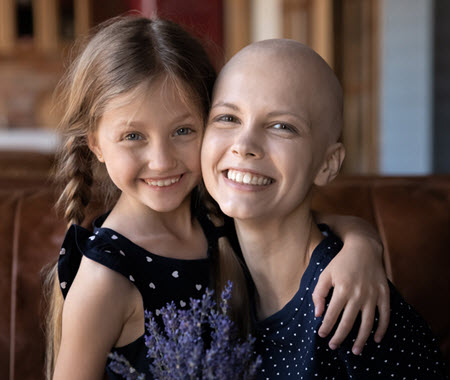 The Shock
The Shock
“No.” Sarah* shook her head and repeated emphatically. “No, this can’t be happening to me – I’m only 42!”
“I can’t believe it. I eat healthily and go to the gym. No one in my family has ever had breast cancer before.
When we first met, Sarah described a whirlwind of emotions. She shared that she was terrified of all the unknowns ahead.
“Will treatment hurt? Am I making the right choices? What will I tell my friends and family, and when?”
“Will, my husband, still find me attractive if I need a mastectomy? Will I lose my hair? Will I be strong enough to pick up and play with my daughter? Will this cancer kill me?”
The Fears
We talked about the typical fears of a medical crisis: loss of control, loss of self-image, dependency, stigma, abandonment, anger, isolation, and death.
Sarah identified with many of these feelings and added her discomfort in talking about her disease and deciding when, how, and with whom to share information. She revealed her hope to find mental and emotional calm even as her physical body changes against her will..
First Steps
We brainstormed ways to increase her social support and brought in her husband to discuss her concerns about attractiveness, intimacy, and dependency.
 The Work
The Work
“I want to feel useful and important like I have something to contribute, not like a sick person.”
So, we explored Sarah’s passions and the things that give her life meaning.
We identified what might be gone for good or gone for now. We also discovered the parts that would remain intact and those upon which she could build.
Sarah dove deep into her beliefs about illness, cancer, and death, finding many examples of resilience and positive coping strategies throughout her life.
Using journaling and homework, we identified ways to amplify her skills and practice new ones.
The Plan
We employed Caring Bridge to schedule the help of family, friends, and the community to provide for children’s carpool, meal delivery, and transportation to medical appointments. We found age-appropriate support groups for her children with kids whose families were affected by cancer. She divulged her diagnosis to the children’s school so that the school counselor could also be a resource.
We researched assistive devices, wigs, and possible home modifications when the time comes to mobilize those options. Sarah now knew where to go and what she needs.
The essential piece of work involved Sarah’s attitudes and beliefs about herself, her illness, and her power. Finally, we did some creative visualization and vision boarding around her hopes for health, healing, and future.
The Results
Since we began treatment, she reports that she has found a renewed passion for life, the wealth of her inner strength, and a stronger connection to her family.
Both Sarah and her husband shared that they felt closer and appreciated the facilitation of conversations they wanted and needed to have but didn’t know how to start.
Sarah Met Her Medical Crisis With Confidence – So Can You
Hope and comfort are possible, even with a chronic or severe medical condition. Call today for your free consultation.
*Name changed to protect client confidentiality.

